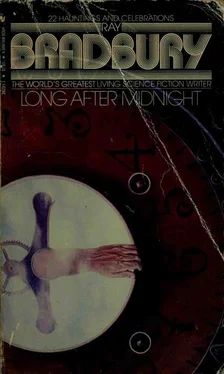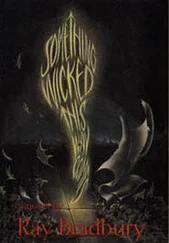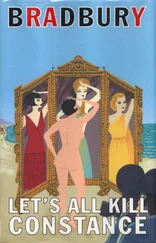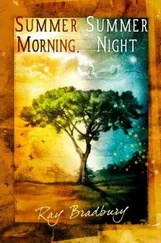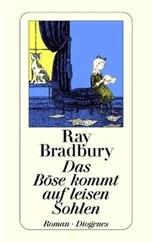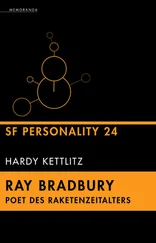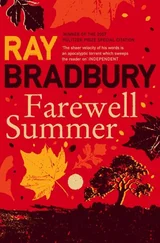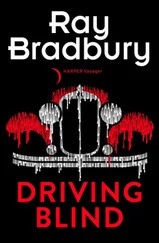Ray Bradbury - Long After Midnight
Здесь есть возможность читать онлайн «Ray Bradbury - Long After Midnight» — ознакомительный отрывок электронной книги совершенно бесплатно, а после прочтения отрывка купить полную версию. В некоторых случаях можно слушать аудио, скачать через торрент в формате fb2 и присутствует краткое содержание. Год выпуска: 1982, ISBN: 1982, Жанр: Классическая проза, на английском языке. Описание произведения, (предисловие) а так же отзывы посетителей доступны на портале библиотеки ЛибКат.
- Название:Long After Midnight
- Автор:
- Жанр:
- Год:1982
- ISBN:978-0-553-22867-0
- Рейтинг книги:5 / 5. Голосов: 1
-
Избранное:Добавить в избранное
- Отзывы:
-
Ваша оценка:
- 100
- 1
- 2
- 3
- 4
- 5
Long After Midnight: краткое содержание, описание и аннотация
Предлагаем к чтению аннотацию, описание, краткое содержание или предисловие (зависит от того, что написал сам автор книги «Long After Midnight»). Если вы не нашли необходимую информацию о книге — напишите в комментариях, мы постараемся отыскать её.
Long After Midnight — читать онлайн ознакомительный отрывок
Ниже представлен текст книги, разбитый по страницам. Система сохранения места последней прочитанной страницы, позволяет с удобством читать онлайн бесплатно книгу «Long After Midnight», без необходимости каждый раз заново искать на чём Вы остановились. Поставьте закладку, и сможете в любой момент перейти на страницу, на которой закончили чтение.
Интервал:
Закладка:
"It's nothing," he said, taking them.
They walked for a few minutes and he did not say a word. She glanced over and slightly down at him and saw how at ease he was and how happy he seemed, and she decided to let him break the silence, but he never did. When they reached the edge of the school ground he gave the books back to her. "I guess I better leave you here," he said. "The other kids wouldn't understand."
"I'm not sure I do, either, Bob," said Miss Taylor.
"Why we're friends," said Bob earnestly and with a great natural honesty.
"Bob—" she started to say.
"Yes'm?"
"Never mind." She walked away.
"I'll be in class," he said.
And he was in class, and he was there after school every night for the next two weeks, never saying a word, quietly washing the boards and cleaning the erasers and rolling up the maps while she worked at her papers, and there was the clock silence of four o'clock, the silence of the sun going down in the slow sky, the silence with the catlike sound of erasers patted together, and the drip of water from a moving sponge, and the rustle and turn of papers and the scratch of a pen, and perhaps the buzz of a fly banging with a tiny high anger against the tallest clear pane of window in the room. Sometimes the silence would go on this way until almost five, when Miss Taylor would find Bob Spaulding in the last seat of the room, sitting and looking at her silently, waiting for further orders.
"Well, it's time to go home," Miss Taylor would say, getting up.
"Yes'm."
And he would run to fetch her hat and coat. He would also lock the schoolroom door for her unless the janitor was coming in later. Then they would walk out of the school and across the yard, which was empty, the janitor taking down the chain swings slowly on his stepladder, the sun behind the umbrella trees. They talked of all sorts of various things.
"And what are you going to be, Bob, when you grow up?"
"A writer," he said.
"Oh, that's a big ambition; it takes a lot of work."
"I know, but I'm going to try," he^aid. "I've read a lot."
"Bob, haven't you anything to do after school?"
"How do you mean?"
"I mean, I hate to see you kept in so much, washing the boards."
"I like it," he said. "I never do what I don't like."
"But nevertheless."
"No, I've got to do that," he said. He thought for a while and said, "Do me a favor, Miss Taylor?"
"It all depends."
"I walk every Saturday from out around Buetrick Street along the creek to Lake Michigan. They're a lot of butterflies and crayfish and birds. Maybe you'd like to walk, too."
"Thank you," she said.
"Then you'll come?"
"I'm afraid not."
"Don't you think it'd be fun?"
"Yes, I'm sure of that, but I'm going to be busy."
He started to ask doing what, but stopped.
"I take along sandwiches," he said. "Ham-and-pickle ones. And orange pop and just walk along, taking my time. I get down to the lake about noon and walk back and get home about three o'clock. It makes a real fine day, and I wish you'd come. Do you collect butterflies? I have a big collection. We could start one for you."
"Thanks, Bob, but no, perhaps some other time."
He looked at her and said, "I shouldn't have asked you, should I?"
"You have every right to ask anything you want to," she said.
A few days later she found an old copy of Great Expectations, which she no longer wanted, and gave it to Bob. He was very grateful and took it home and stayed up that night and read it through and talked about it next morning. Each day now he met her just beyond sight of her boarding house and many days she would start to say, "Bob—" and tell him not to come to meet her anymore, but she never finished saying it, and he talked with her about Dickens and Kipling and Poe and others, coming and going to school. She found a butterfly on her desk on Friday morning. She almost waved it away before she found it was dead and had been placed there while she was out of the room. She glanced at Bob over the head of her other students, but he was looking at his book, not reading, just looking at it.
It was about this time that she found it impossible to call on Bob to recite in class. She would hover her pencil about his name and then call the next person up or down the list. Nor would she look at him while they were walking to or from school. But on several " late afternoons as he moved his arm high on the blackboard, sponging away the arithmetic symbols, she found herself glancing over at him for seconds at a time before she returned to her papers.
And then on Saturday morning he was standing in the middle of the creek with his overall rolled up to his knees, kneeling down to catch a crayfish under a rock, when he looked up and there on the edge of the running stream was Miss Ann Taylor.
"Well, here I am," she said, laughing.
"And do you know," he said, "I'm not surprised."
"Show me the crayfish and the butterflies," she said.
They walked down to the lake and sat on the sand with a warm wind blowing softly about them, fluttering her hair and the ruffle on her blouse, and he sat a few yards back from her and they ate the ham-and-pickle sandwiches and drank the orange pop solemnly.
"Gee, this is swell," he said. "This is the swellest time ever in my life."
"I didn't think I would ever come on a picnic like this," she said.
"With some kid," he said.
"I'm comfortable, however," she said.
"That's good news."
They said little else during the afternoon.
"This is all wrong," he said, later. "And I can't figure why it should be. Just walking along and catching old butterflies and crayfish and eating sandwiches. But Mom and Dad'd rib the heck out of me if they knew, and the kids would, too. And the other teachers, I suppose, would laugh at you, wouldn't they?"
"I'm afraid so."
"I guess we better not do any more butterfly catching, then."
"I don't exactly understand how I came here at all," she said.
And the day was over.
That was about all there was to the meeting of Ann Taylor and Bob Spaulding, two or three monarch butterflies, a copy of Dickens, a dozen crayfish, four sandwiches, and two bottles of Orange Crush. The next Monday, quite unexpectedly, though he waited a long time, Bob did not see Miss Taylor come out to walk to school. But discovered later that she had left earlier and was already at school. Also, Monday night, she left early, with a headache, and another teacher finished her last class. He walked by her boarding house but did not see her anywhere, and he was afraid to ring the bell and inquire.
On Tuesday night after school they were both in the silent room again, he sponging the board contentedly, as if this time might go on forever, and she seated, working on her papers as if she, too, would be in this room and this particular peace and happiness forever, when suddenly the courthouse clock struck. It was a block away and its great bronze boom shuddered one's body and made the ash of time shake away off your bones and slide through your blood, making you seem older by the minute. Stunned by that clock, you could not but sense the crashing flow of time, and as the clock said five o'clock, Miss Taylor suddenly looked up at it for a long time, and then she put down her pen.
"Bob," she said.
He turned, startled. Neither of them had spoken in the peaceful and good hour before.
"Will you come here?" she asked.
He put down the sponge slowly.
"Yes," he said.
"Bob, I want you to sit down."
"Yes'm."
She looked at him intently for a moment until he looked away. "Bob, I wonder if you know what I'm going to talk to you about. Do you know?"
"Yes."
"Maybe it'd be a good idea if you told me, first."
"About us," he said, at last.
Читать дальшеИнтервал:
Закладка:
Похожие книги на «Long After Midnight»
Представляем Вашему вниманию похожие книги на «Long After Midnight» списком для выбора. Мы отобрали схожую по названию и смыслу литературу в надежде предоставить читателям больше вариантов отыскать новые, интересные, ещё непрочитанные произведения.
Обсуждение, отзывы о книге «Long After Midnight» и просто собственные мнения читателей. Оставьте ваши комментарии, напишите, что Вы думаете о произведении, его смысле или главных героях. Укажите что конкретно понравилось, а что нет, и почему Вы так считаете.
